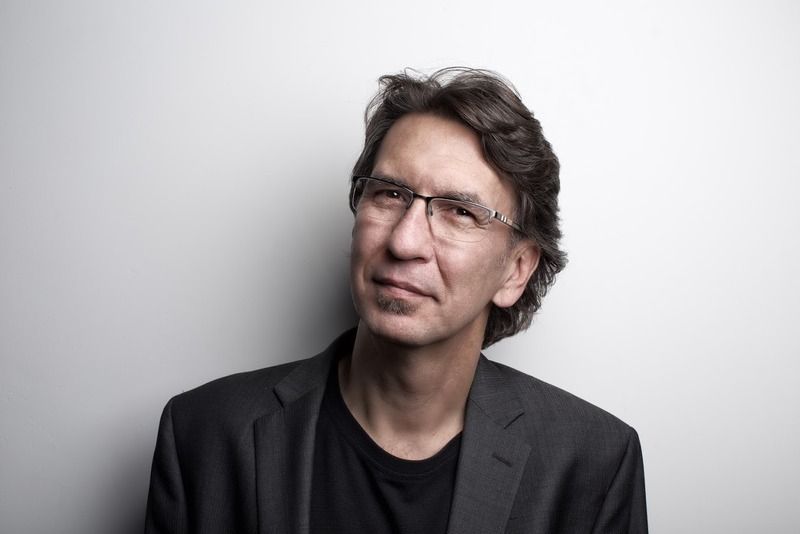Success, Mindfulness, and the Concealed Costs of Hustle
May 8, 2016

NOTE: On Monday, May 9, 2016 we had an outstanding discussion on Blab to go far more in depth with this same topic.
Here’s the recording of that discussion.
Be sure to check it out!
http://bit.ly/HustleBlab
Success will never be the same again. As technology and social media transform business, entrepreneurs and other business leaders have no choice. They must find new ways of capturing attention, extending their influence and staying ahead of the pack.
At times like this, times of high transition, it’s common to look for new voices and new ways of thinking to help us navigate the uncertain road ahead. For regular viewers of YouTube and other social media platforms, Gary Vaynerchuk is currently one of the most influential of these voices. Despite an irreverent style and rapid-fire, potty-mouth banter, Gary Vee preaches a refreshingly holistic form of social-era evangelism. His message is one based on a razor-sharp understanding of consumer behavior, empathic concern for others and unflinching self-awareness.
The Misreading of Hustle
Yet, even with several best-sellers and near-24/7 media presence, one Vaynerchuk’s key ideas seems to be continually misinterpreted. And not only that: this misinterpretation has taken on almost cult-like status. I’m referring to the idea of “Hustle”.
In his latest book, #AskGaryVee: One Entrepreneur’s Take on Leadership, Social Media, and Self-Awareness, Vaynerchuk devotes a whole chapter to the topic of hustle. This is for good reason. As he points out in the introduction, Vaynerchuk frequently finds that many take a superficial approach to this concept, sadly missing his deeper meaning.
Hustle is a passionate commitment working hard to manifest one’s own personal vision of success. But the key to hustle—and this is the part that many so often miss—is that it only has value when integrated with the entire #GaryVee approach. This is a commitment to success based on gratitude, self-awareness, empathy, and putting others’ well-being first.
The Cult of Hustle
A quick search of either Twitter or Instagram for the hashtag #hustle quickly shows that Vaynerchuk’s deeper commitments are all but lost. Instead we see scores of messages reflecting what I call the “Cult of Hustle.”
But the problem here is more than just misrepresentation. It’s misguidance. Instead of championing collaborative empowerment, the Cult of Hustle preaches an outdated message of self-celebrating narcissism.
I know this sounds harsh, but there is good reason. In a recent piece in The Atlantic, researcher Kristin Neff describes our culture’s fixation with self-celebration as the “cure-all in the quest for inflated egos.” But the problem is bigger than just a misguided understanding of self-esteem. When set loose in business, the Cult of Hustle serves up a profound misreading of contemporary business dynamics and the nature of success.
Outdated Heroicism
A close look at the popular notion of hustle reveals an underlying assumption that success is an heroic achievement. In this form of achievement, success comes from working harder, being smarter, and being more shrewd than anyone else. So, to feel worthy and attain the success I envision, many others must end up being “less-than me”.
Within business, this heroic approach to success is the same that helped leaders triumph in the long-gone industrial era. But the heroic leaders of yesterday aren’t going to solve problems in today’s volatile, socially-driven business environment. In today’s complex world, the Cult of Hustle just ain’t gonna cut it.
21st Century Business: A Need for Community
To get a better idea of what will cut it, we should look a bit more closely at the kind of challenges business now faces. Writing in Huffington Post, Ayelet Baron described the unique characteristics of 21st century business and what it now takes to be successful.
The 21st century is about community and open, two-way conversations. We no longer need to yell at people and broadcast to get their attention. People want to engage in conversation and be listened to. The new breed of leaders respect people and allow for communities to form where they no longer need to be at the head.
This is not just feel-good rhetoric. It’s a prescription for the kind of volatile, uncertain, complex, and ambiguous problems today’s entrepreneurs face every day. Problems like these simply will not yield to the old, heroic model of authority and expertise. New thinking—like that offered by Gary Vaynerchuk—is now needed to meet these new challenges.
So if the Cult of Hustle is better suited to a by-gone era of success, what is the alternative? For that, we should talk briefly about mindfulness.


Essential theme, although not achieved by writing alone. Hearts and minds need meeting.
Hi Joseph, Oh I agree with you entirely! Actually, we did a Blab tonight on this same topic and the issue of human connection came up in a big way. Such an important theme. I’ll sure I’ll be writing more about it soon. Kindly, ~d
Interesting, too, is that many mindfulness teachers and scholars include kindness and compassion as two attitudinal foundations of the practice. Kabat -Zinn is included among them, feeling that without these to components, mindfulness can sometimes run amok.
Hey Val,
Yeah, that’s so important! As I commented earlier, while I’m glad I wrote about mindfulness, I feel like I’m only hitting it at a very superficial level compared to where business and organizations need to go with this. Even when I was writing this, I wish I could have devoted more space to the mindfulness part. That said, I’m sure I’ll be following up with more writing on this topic. Thanks for your comments! ~d
Interestingly, Kabat-Zinn and others now include the additional attitudinal foundations of kindness and compassion into their explanation of mindfulness as a way to keep it from running amok.
Whoops – the first comment did not initially post – sorry about that!
🙂